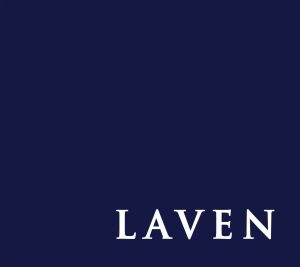Welcome to the sixth edition of the monthly Laven Partners’ Monitoring Update on the proposed AIFM Directive.
The new Directive seeking to regulate hedge funds is charging ahead to become law. Laven Partners provides a monthly update on the development and status of this Directive. In the true Laven Partners style, we also look at any interesting comments made by regulators and leading industry players in relation to the Directive.
Our aim is to involve the financial community and notably to aggregate the representation of investors as we believe the Directive severely reduces their access to investment opportunities. Please register your interest and comments by emailing us at [email protected]. Please feel free to forward our monitoring update to anyone who may be interested.
_____________________________________________________________________________
Since the release of the amended AIFM Directive by the Swedish Presidency, another revision has emerged. Jean-Paul Gauzès, Rapporteur for the European Parliament’s Committee on Economic and Monetary Affairs, has produced a report which proposes numerous changes to the Directive. These amendments have been received with mixed reaction by the industry following several months of intense campaigning.
Gauzès’ report takes into consideration certain interests of investors which to date have been largely neglected. The much debated article on the marketing of third-country funds has been re-drafted and it now states that: “Any European investor should be free to invest on its own initiative, in a third country fund in accordance with the existing national private placement regimes. “The reference to a three year transitional period for third country fund passports has also been removed.
The re-drafting of the article was welcomed by the Association of British Insurers whose director of investment affairs, Peter Montagnon, noted that: “You can discern some practical solutions in all the fog”. However, despite the more realistic regulatory approach adopted by some decision-makers in the EU, some funds are nevertheless taking precautions by considering moving from their originally established jurisdictions. For example, we have been speaking with a number of funds considering re-domiciliation from the Cayman Islands and moving on-shore to the US or Luxembourg in an attempt to bring funds under what is perceived as a stronger regulatory framework. Many that aren’t, are at a minimum considering establishing on-shore parallel structures to take advantage of changing investor sentiment or perceived market opportunity.
On the other hand, despite the recent temporary bans on short-selling, Gauzès’ amendments to the Directive’s short-selling provisions have been criticised. According to the report, managers would be required to disclose significant short positions to regulatory authorities with an operationally difficult frequency.
With regards to remuneration, Gauzès followed the Swedes’ lead. He said the basis for pay should be aligned with the G20 leaders’ conclusions in September setting out an “international consensus concerning remuneration of staff in banks and other systemically important financial services firms.”
A recent impact assessment by research consultants Europe Economics has revealed that the implementation of the Directive in its current format would cost the EU 0.1% to 0.2% in annual GDP growth and that there would be a short-term rise in unemployment of 0.8% as the fund industry adjusted to the changes. The study also found that one-off compliance costs would rise between €110m and €2.2bn in total for hedge funds, private equity and venture capital.
In the political arena, opinions followed old party lines. A German liberal MEP said that “fund managers drive in fifth gear” and pushed for stricter regulations. Meanwhile, Shadow Treasury Financial Secretary Mark Hoban said the UK Government had not done enough to influence the EC Directive: “We were absent from the field. The industry took the lead in critiquing the directive and coming forward with positive proposals. The Treasury rode in rather late in the day –.”
The EU Select Committee of the House of Lords also wrote to Lord Myners, the Financial Services Secretary to HM Treasury, addressing their concerns over the Directive. Interestingly, the House of Lords raised the issue that the Directive in its current format would bring about an unnecessary level of protection to well-informed institutional investors and banks. It was also recommended that the Directive be in line with, and complement, global arrangements. The House of Lords noted that coordination with the US is essential to avoid a situation where the EU loses competitiveness at a global level as a result of regulations.
Laven Partners joined in on the discussions with MEPs this month. We heard that because of the extent of anti-British sentiment on the continent, non-British contacts should be utilised to lobby points on behalf of UK representatives. We were also told that UK politicians are wary of making a stand for the UK and the financial industry because of fear of being seen as funded by or representing the hedge fund/private equity industry or banks.
Following months of campaigning, the Directive finally seems to have gathered some positive momentum with some reasonable amendments being introduced and an awareness that should help drive a better result. Even though one EU negotiator said it would be unlikely that member states will be in agreement on the Directive before the Spanish presidency takes over in January, we have heard that the Swedes are briefing the Spanish in advance of January and there are even rumours of a new Spanish text by the end of that month. Before then the Swedes have promised a progress report on the Directive which should make splendid reading over the holiday period.
In terms of the legislative process, we understand that the objective is for Parliament to vote on the final text of the Directive by July 2010, with 3 years expected for implementation by 2013.
______________________________________________________________________________
Please keep a look out again for our next monthly monitoring update on the EC Directive.




